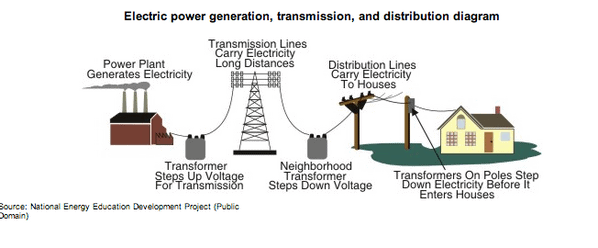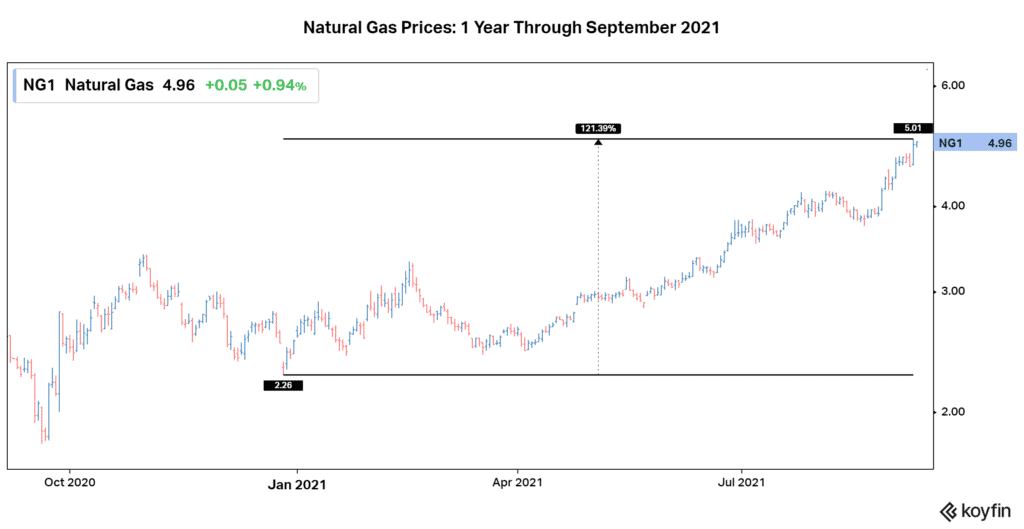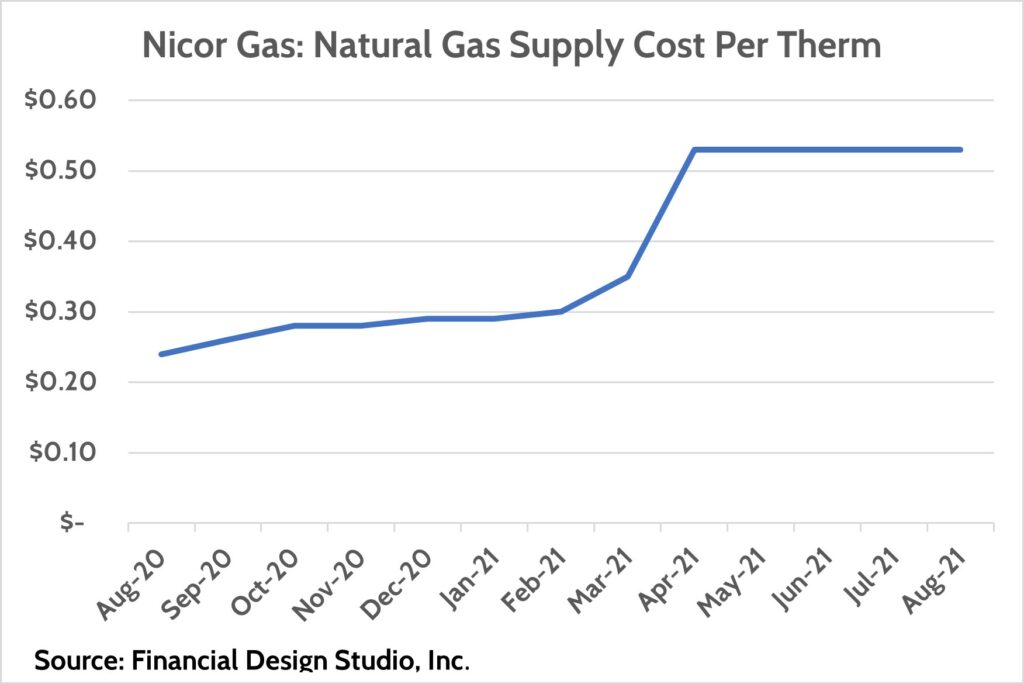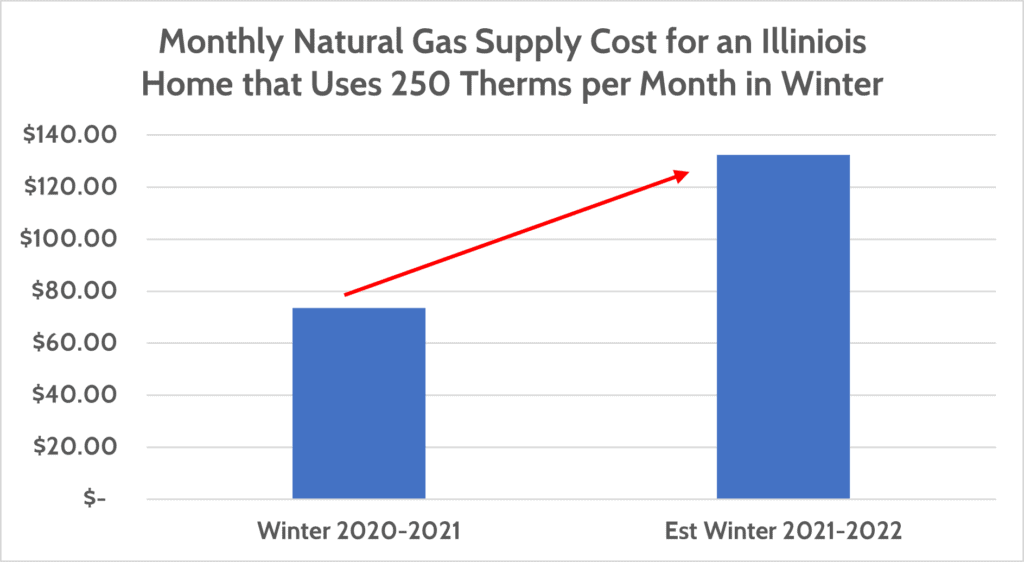Illinois Residents: Should you switch natural gas suppliers before winter?
by Rob Stoll, CFP®, CFA Financial Advisor & Chief Financial Officer / September 9, 2021
Weekend forecasts are calling for 90-degree weather for this second weekend of September. But now is the time to turn your attention to winter heating costs. We believe consumers will be in for a rude awakening, as natural gas prices have surged since last winter. The question for Illinois Residents is this: Should you switch natural gas suppliers before winter?
The Role of Your Utility Company and Energy Provider in Illinois
All states regulate their utilities in order to ensure everyone has consistent access to electricity and heat. The Illinois Commerce Commission regulates public utilities in Illinois. But in 1984, the Illinois General Assembly also created the Citizens Utility Board, a nonprofit organization tasked with helping consumers fight for better rates on their utility bills.
The vast majority of consumers pay little attention to their utility bills. It’s a cost of living that’s going to be there whether or not you want it. Putting the monthly bills on autopay puts even more distance between us and knowing what’s on our bills.
In Illinois, there are two distinct “actors” when you’re getting your electric and natural gas. First is the public utility, who’s in charge of delivering energy to your home. These are the names we all know. People’s Gas, Nicor, North Shore Energy, and ComEd.
Second, there’s your energy supplier. That’s the company who’s actually selling you the natural gas or electricity that you use. In most cases, your supplier is the same as your utility company. But get this – you have a choice with whom supplies your energy, and sometimes it makes sense to get it from someone other than your utility company.

Summing up, your SUPPLIER generates the electricity or natural gas, while your UTILITY transmits and distributes the electricity or natural gas to your home. You can’t control how much your utility charges for transmission and distribution, but you can choose who supplies your energy.
Why is Now a Good Time to Check Your Natural Gas Price?
Ever since the Coronavirus pandemic, it seems like prices for everything have gone up. Food, cars, electronics – pretty much everything. Quietly in the background, natural gas prices have surged as well.

Since the start of 2021, spot natural gas prices have more than doubled. It’s been a hot summer and natural gas supply has been slow to ramp up because of environmental policy issues. Hurricane Ida passing through key oil fields in the Gulf of Mexico didn’t help the situation, which is why prices have increased a lot just in the last two weeks.
Has this rise in natural gas flowed through to your gas bill? YES! Many consumers have not felt the increase because natural gas usage drops considerably in Spring and Summer. But the increase in natural gas costs has been unmistakable. The chart below is the cost my family has paid for natural gas over the last 12 months.

As you can see, the cost per therm has gone up considerably. From 24c in August 2020 to 53c today, a 120% increase. Looking at the cost since winter, it has gone up from 29c, an 83% increase which is in the ballpark of the spot natural gas price increase seen in the previous chart.
To put dollars and cents on this, if a typical home uses 250 therms of natural gas per month during winter months, then their natural gas cost was about $73.50/month during Winter 2020-2021. With the increase in cost since then, that same home would see their natural gas cost increase to $132.50/month for the coming winter, a $59/month increase over last year.

Where Can You Find Cheaper Natural Gas Rates?
Since we’re heading into winter, I’m going to focus on natural gas. But the same rules apply to your electric bill with ComEd. For natural gas, Illinois has a program called Alternative Gas Supplier. As the name implies, you have the choice to decide who supplies your natural gas.
The Illinois Commerce Commission has a nice webpage that allows you to search for other natural gas suppliers. My only beef with this site is that the rates shown may be outdated. But it’s at least a good place to start your search.
The three major natural gas utilities in Northern Illinois also have pages on their website where you can see a list of suppliers.
I’ll give you this fair warning before you begin: it’s going to take some time and work to search through various options. Prices from alternative suppliers change regularly, which means visiting each of their websites for their latest price offers.
Here’s an example of a natural gas supplier that offers gas in Barrington, IL, where Financial Design Studio is located.


Now this is where it gets tricky and you have to do your homework. Remember that Nicor Gas is currently charging $0.53 per therm for natural gas. This provider, Santanna Energy, offers two stand-alone plans for Nicor. One would charge you $0.499 per therm for a monthly cost of $5.99. The other charges you $0.399 per therm with no monthly subscription cost. Why would anyone choose the $0.499 plan?
The devil in the detail of the more expensive plan is that they guarantee that if natural gas prices fall, you’ll get a better rate. The cheaper $0.399 plan doesn’t offer that feature. As I showed above, Nicor was charging just $0.24/therm a year ago. So while you’d pay more TODAY by choosing the more expensive subscription plan, you’d also keep the benefit of lower prices if they fell a lot.
Commodity prices are volatile, so seeing a huge decline in natural gas isn’t out of the question. But this is a good example of why most people don’t change suppliers – it can be too much work!
There’s one more important source of cheaper natural gas: your town, village or city. Many local governments will work with suppliers to deliver cheaper gas to residents. All you have to do is sign up. This is probably the best first place to look for cheaper natural gas.
Pros & Cons of Switching Natural Gas Suppliers
There are pros and cons to switching suppliers. Here’s a list of things to think about before you make a switch.
Pros:
- Cost savings: You might find cheaper supply rates than what your current utility is offering
- Predictability: Many suppliers will offer stable prices for 12 months or more. This can help remove a lot of volatility from your monthly gas bill when natural gas prices are moving up and down a lot
- Flexibility: Many natural gas suppliers won’t lock you in to a long-term contract, like a cable company. But make sure you confirm this before switching
- Choose Your Energy Source: This mainly applies to electricity, but if you’re strongly inclined to “go green” you can choose electric suppliers that generate electricity from solar or wind sources. Be careful, “green” energy sources can be a lot more expensive
Cons:
- Time & Attention: Few people want to hassle with their utility bills. And if you sign up for 12+ months of set pricing, you need to make sure you’re on top of your gas rate when the contract ends. Just like a gym membership or online subscription, we can often forget about costly expenses when they’re on autopilot.
- Terms & Conditions: It’s very important to make sure you read the fine print before signing a contract. In the example above with Santanna Energy, the “cheaper” plan doesn’t allow for lower prices if natural gas costs fall.
- Hassle: When you switch suppliers, you don’t have to send payments to another company. They will charge you through your utility bill. But some suppliers ask you to sign up for an account online, which is one more username and password to remember.
Illinois Residents: Should You Switch Natural Gas Suppliers Before Winter?
With something as mundane as your utility bills, you can be excused for not paying close attention to what’s going on “underneath the hood” of your bill. But the takeaway in this post is that you have choices, and you have control over the costs of your energy supply.
So should you switch? That depends. Are you the type that’s willing to “hassle” with making sure you’re always using a low-cost supplier? Or do you prefer to set-it-and-forget-it?
The good news is that the main public utilities in Northern Illinois are always competitive. It’s rare that the prices you’re charged for natural gas or electricity are out-of-line with fair, competitive rates offered elsewhere. So if you’re the set-it/forget-it type, sticking with your utility as your energy supplier isn’t a terrible option.
But with natural gas prices surging and Winter 2021-2022 around the corner, you’re going to be in for some sticker shock when your heating bills come in. Switching suppliers may take some of the sting out of recent price increases, at least!
Ready to take the next step?
Schedule a quick call with our financial advisors.
Recommended Reading
Preparing to Transition to Retirement [Video]
In this video, Stephanie Geisler, LPC, discusses how to work through emotions of financial choices of making the transition to retirement.
Impactful Giving: Tax Strategies and Vetting Charities [Video]
We all want to make a difference with impactful giving. In this video, find out how to evaluate charities and employ tax-efficient strategies.

Rob Stoll, CFP®, CFA Financial Advisor & Chief Financial Officer
Rob has over 20 years of experience in the financial services industry. Prior to joining Financial Design Studio in Deer Park, he spent nearly 20 years as an investment analyst serving large institutional clients, such as pension funds and endowments. He had also started his own financial planning firm in Barrington which was eventually merged into FDS.

